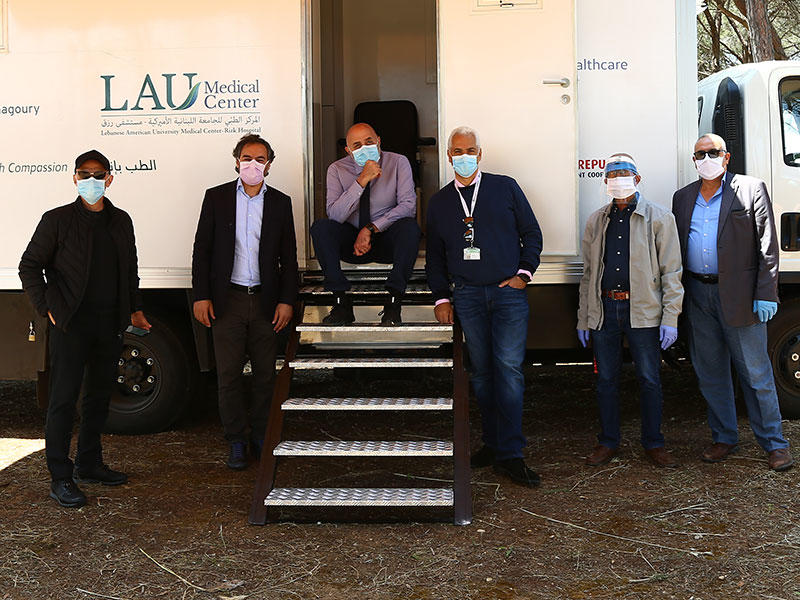Dr. Nicola Ghazi, Clinical Professor and Chair of the Department of Ophthalmology
Saving the injured’s eyesight.

I had just made it home and was about to have dinner with my wife, when the blast went off. As we were still trying to find out what had happened, I received an alert that all physicians and medical staff were urgently needed at the hospital.
The scene I was met with upon arriving in Achrafieh was indescribable. People were bleeding on the pavements. I was torn between stopping and helping them or getting to the hospital.
Throughout the drive there, I was coordinating with my colleagues to move all patients with eye injuries from the ER to the Eye Center, giving utmost priority to cases of open globes, where the laceration is so deep that it cuts through the eye and poses a great risk.
This explosion was tricky in every respect. The initial “earthquake” that people felt drew them to windows where they were at higher risk of being injured by glass shards.
Every passing minute made a difference, especially with open globe cases, as heavy bleeding could push the contents of the eye outward. That is why, due to lack of resources and available operating rooms, I had to refer a few urgent cases to other hospitals as time was of the essence.
It was a night I will never forget because we never saw anything like it. We were walking on blood everywhere. We took care of patients at their absolute worst. They did not know what had happened to their family members, their homes, sometimes even their own bodies.
In the 10 days that followed the blast, we continued to see new patients who had woken up from a coma, or who were being treated for other serious injuries.
Looking back, we were fortunate to have been able to save so many people’s eyesight. We were humbled by personal initiatives of some friends abroad who covered dozens of expensive surgeries.
My thanks go to colleagues, faculty, residents and the members from optometry for all their efforts that fateful night.